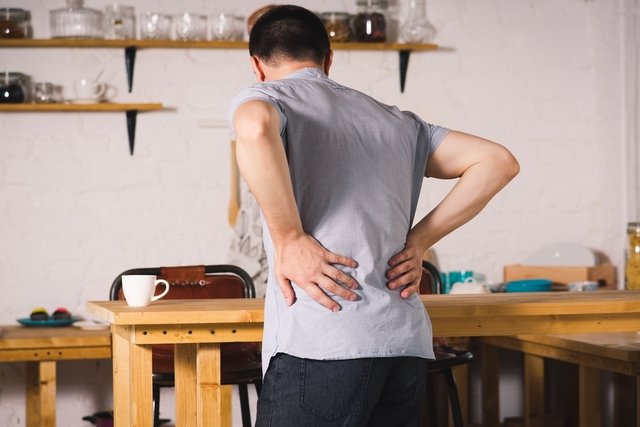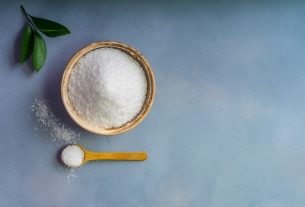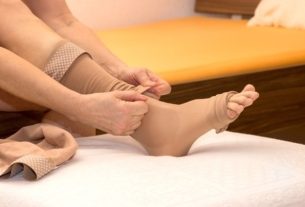The treatment for kidney stones is determined by the nephrologist or urologist according to the characteristics of the stone and the degree of pain described by the person, and it may be recommended to take pain medications that facilitate the removal of the stone.
In cases where the medicines are not enough and the stones are large and are preventing the passage of urine, the doctor may recommend surgery to remove the stones and unblock the channel through which the urine passes.
Kidney stones are a very painful situation and can be related to low water intake, excessive protein intake, systemic diseases such as gout, primary hyperparathyroidism, obesity, inflammatory bowel disease, renal tubule disorder, autoimmune diseases or unhealthy diet. , which can cause substances that should be eliminated in the urine to accumulate, leading to the formation of stones. Learn more about the causes of kidney stones.

4 treatments for kidney stones
The main treatments that may be indicated to treat kidney stones are:
1. Medicines
Medications are normally recommended by the doctor when the person is in crisis, that is, in intense and constant pain. Medications can be administered orally or directly into a vein, where relief is faster. See what to do in a kidney crisis.
Thus, the nephrologist may recommend anti-inflammatories, such as diclofenac and ibuprofen, analgesics, such as dipyrone and paracetamol, or antispasmodics, such as buscopan and even opioids depending on the intensity of the renal crisis.
Furthermore, the doctor may recommend the use of medicines that promote elimination, such as tamsulosin, for example.
2. Surgery
Surgery is usually indicated if the kidney stone is large, greater than 6 mm, or if it is blocking the passage of urine. Pain refractory to drug treatment is another surgical indication, as is the presence of ureteral obstruction with acute kidney injury, regardless of the size of the stone.
In this case, the urologist may decide between the following techniques:
- Extracorporeal lithotripsy: causes the fragmentation of kidney stones through shock waves, until they become dust and are eliminated in the urine;
- Percutaneous nephrolithotomy: uses a small laser device to reduce the size of the kidney stone;
- Ureteroscopia: uses a laser device to break up kidney stones when they are located in the ureter or renal pelvis.
The length of hospital stay will vary depending on the person’s condition. See more details about kidney stone surgery.
3. Laser treatment
Laser treatment for kidney stones, called flexible ureterolithotripsy, aims to fragment and remove kidney stones and is performed from the urethral orifice. This procedure is indicated when the stone is not eliminated even with the use of medications that facilitate its removal.
Ureterolithotripsy is performed under general anesthesia, lasts about 1 hour and, as no cuts or incisions are necessary, recovery is quick, with the patient normally being released 24 hours after the procedure. At the end of this surgical procedure, a catheter called double J is placed, one end of which is in the bladder and the other inside the kidney and aims to facilitate the exit of stones that are still present and prevent obstruction of the ureter as well as facilitate the healing process of the ureter, if the stone has injured this channel.
It is normal that after ureterolithotripsy and placement of the double J catheter, the person has an external catheter for the first few hours after the procedure to drain the urine.
4. Natural treatment
Natural treatment for kidney stones can be done between attacks when there is no pain and involves drinking 3 to 4 liters of water a day to help eliminate small stones. Furthermore, if there is a family history of kidney stones, it is important to eat a diet low in protein and salt because this can prevent new stones from appearing or small stones from increasing in size. Check out how to follow a kidney stone diet.
Furthermore, a good homemade option for small kidney stones is stonebreaker tea as, in addition to having a diuretic action and facilitating the elimination of urine, it relaxes the ureters, facilitating the exit of the stones. To make the tea, simply add 20 g of dry stonebreaker leaves for every 1 cup of boiling water. Let it rest, and then drink it when it is warm, several times during the day. See another home remedy option for kidney stones.
Which doctor to consult
Two medical specialists must be consulted to guide kidney stone treatment, which are the nephrologist and the urologist.
Taking care of your health has never been easier!
The nephrologist is responsible for carrying out clinical treatment and clinical investigation of the condition that predisposed the formation of the stone and treating it to prevent the condition from recurring.
The urologist is the doctor who assesses the need for surgical intervention to avoid complications or treat complications that require surgery to resolve them.
These professionals must work in sync, maintaining a good relationship for the best outcome for the patient.

Sign up for our newsletter and stay up to date with exclusive news
that can transform your routine!
Warning: Undefined array key "title" in /home/storelat/public_html/wp-content/plugins/link-whisper-premium/templates/frontend/related-posts.php on line 12
Warning: Undefined array key "title_tag" in /home/storelat/public_html/wp-content/plugins/link-whisper-premium/templates/frontend/related-posts.php on line 13




